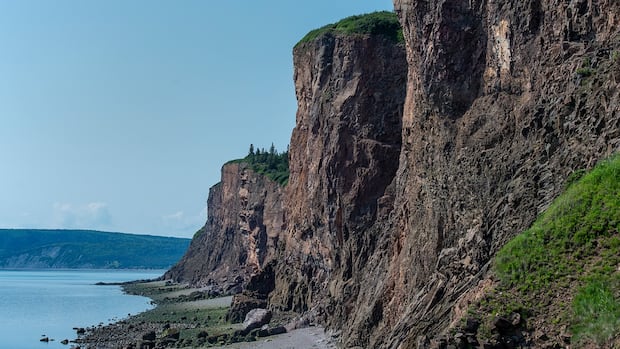Cliffs of Fundy secures UNESCO ‘green card’ for another four years

Nova Scotia’s Cliffs of Fundy Geopark has successfully regained its full status as a UNESCO Global Geopark for another four years. An evaluation in 2023 by independent assessors found that the site needed to make improvements, resulting in its UNESCO status being downgraded to a yellow card.
John Calder, the Canadian representative for the Global Geoparks Network and a native of Cumberland County, expressed how the warning served as a catalyst for the community to come together and make necessary changes. The park was given 10 recommendations, including securing more funding, enhancing structures, and formalizing partnerships to meet the criteria set by UNESCO.
After diligent efforts and dedication from the community, most of the goals were achieved, and the remaining ones were partially fulfilled. As a result, the council overseeing geoparks recommended that Cliffs of Fundy be reinstated with its green card status.
Calder, who attended the international conference on UNESCO Global Geoparks in Chile, shared that the report was overwhelmingly positive, highlighting the remarkable progress made in just two years. The council commended the park for its achievements and praised the community for their commitment to preserving the site’s beauty and culture.
With Cliffs of Fundy Geopark back in good standing, along with Newfoundland and Labrador’s Discovery Geopark, all five Canadian geoparks now hold full UNESCO status. Calder emphasized the emotional significance of this achievement for the small rural communities in Nova Scotia and Newfoundland, as the UNESCO designation not only puts these regions on the map but also attracts tourism revenue.
The next crucial step is the ratification of the council’s decision by UNESCO, a process that Calder believes is highly likely to be approved. The geological and cultural significance of UNESCO Global Geoparks, such as the Cliffs of Fundy, cannot be understated. The site boasts the world’s highest tides, unique rock formations that document the breakup of the supercontinent Pangea, and a rich history rooted in the Mi’kmaw heritage.
Looking ahead, the focus will now shift to the upcoming assessments of Tumbler Ridge Geopark in British Columbia and Stonehammer UNESCO Global Geopark in New Brunswick, both of which are currently in good standing. These geoparks play a vital role in preserving our planet’s geological and cultural heritage, showcasing the importance of conservation and sustainable tourism practices.




